“Made for This”
Psalm 139:1-3, 13-14
July 30, 2017, First Presbyterian Church of Holt
 What do you want to be when you grow up?
What do you want to be when you grow up?
When I was little, I always struggled with this question because I’ve always been interested in so many things. If I could’ve been a professional horseback riding, opera singing, francophone playwright, I might’ve ended up somewhere else entirely!
 In eighth grade in the midst of confirmation and career research paper, God pointed me to a way that I could live a life of being totally and utterly myself, by becoming a pastor. It’s as though God was pointing to each part of my personality and character and saying, “I can use that.” My listening ear became pastoral care, my singing became praise, and my storytelling became preaching.
In eighth grade in the midst of confirmation and career research paper, God pointed me to a way that I could live a life of being totally and utterly myself, by becoming a pastor. It’s as though God was pointing to each part of my personality and character and saying, “I can use that.” My listening ear became pastoral care, my singing became praise, and my storytelling became preaching.
 Our Psalm today tells us God’s knitting us together and I imagine each of these passions and traits being woven into a complex design. It’s incredible to think the level to which God knows us and the intricacies God has placed within each of us. Thinking of God as a knitter I think of how the act of knitting establishes connection, not just between the stitches in the garment, but also between everything that brought that item into creation
Our Psalm today tells us God’s knitting us together and I imagine each of these passions and traits being woven into a complex design. It’s incredible to think the level to which God knows us and the intricacies God has placed within each of us. Thinking of God as a knitter I think of how the act of knitting establishes connection, not just between the stitches in the garment, but also between everything that brought that item into creation  from grass eaten by the sheep that is sheared to the spinning wheel or factory that formed the wool into yarn. From where the yarn was bought to where and when the item was knit. Each part of the journey impacts how the item turns out, reflecting the quality of the grass, the life of the sheep, the expertise of the spinner, and the temperament of the knitter.
from grass eaten by the sheep that is sheared to the spinning wheel or factory that formed the wool into yarn. From where the yarn was bought to where and when the item was knit. Each part of the journey impacts how the item turns out, reflecting the quality of the grass, the life of the sheep, the expertise of the spinner, and the temperament of the knitter.
 There are items that I have knit in Bible studies, on planes, with friends, by myself. When I see the knitted garment I know where the yarn came from, the pattern that was selected or designed, where I was at each part of the item’s creation, and how much work went into all of it. Because of this, I am connected to that item. This connectivity means that I care about what happens to it.
There are items that I have knit in Bible studies, on planes, with friends, by myself. When I see the knitted garment I know where the yarn came from, the pattern that was selected or designed, where I was at each part of the item’s creation, and how much work went into all of it. Because of this, I am connected to that item. This connectivity means that I care about what happens to it.
There have been a few times with this connectivity has been hard: a hat made with specialty yarn, knit from a new pattern with a complicated technique was lost in the mail as I tried to send it to a friend; a backpack that I designed the pattern for, and learned how to crochet so that I could make drawstring straps turned out not to be sturdy enough to hold much of anything; and a hat made from five different beautiful yarns all cabled together turned out to be much too small. In each of these instances, it was hard to know that this item that I had spent so much energy on, were not able to be utilized in the way I had intended.
 Our creator, who knows us so intimately, desires that we live into God’s intentions for our lives. With a knitter’s energy, God has joyfully set out plans for all of creation, and specifically for our lives, but God also waits with a deep patience for us to respond, for us to be formed into who God has created us to be.
Our creator, who knows us so intimately, desires that we live into God’s intentions for our lives. With a knitter’s energy, God has joyfully set out plans for all of creation, and specifically for our lives, but God also waits with a deep patience for us to respond, for us to be formed into who God has created us to be.
 One of the greatest joys of ministry is discovering over and over again how God takes whoever we are and whatever gifts we bring and transforms it all to God’s glory. I’ve seen this happen time and time again in this congregation: You’ve got skills in construction? God has a call for you to maintain the building where God’s people meet. You’re able to create stained glass pieces? God can use those talents to teach others about the depth and breadth of God’s teaching over time. You know how to organize people, food, or equipment? You can serve God through helping others with the Food Bank and medical lending closet. You feel most alive when your hands are creating art? Your art can be a worshipful practice for you and inspire others.
One of the greatest joys of ministry is discovering over and over again how God takes whoever we are and whatever gifts we bring and transforms it all to God’s glory. I’ve seen this happen time and time again in this congregation: You’ve got skills in construction? God has a call for you to maintain the building where God’s people meet. You’re able to create stained glass pieces? God can use those talents to teach others about the depth and breadth of God’s teaching over time. You know how to organize people, food, or equipment? You can serve God through helping others with the Food Bank and medical lending closet. You feel most alive when your hands are creating art? Your art can be a worshipful practice for you and inspire others.
 What’s hard however, is when you feel like the multiple calls God has placed on your life are pulling you in different directions at once. Sometimes we want to say, come on God, can you be a bit more clear in your “searching out our path?”
What’s hard however, is when you feel like the multiple calls God has placed on your life are pulling you in different directions at once. Sometimes we want to say, come on God, can you be a bit more clear in your “searching out our path?”
One of the most profound and annoying things I have ever heard about discernment came from a professor at Pittsburgh Seminary. I was there for a prospective student visit and we were in a session talking about the ordination process. I don’t remember quite who it was that was meeting with us, but I remember distinctly that he said that when we are discerning where to go or what to do, God sometimes just says, “yes.” We ask if we’re supposed to go to Pittsburgh or Louisville or Richmond for seminary and God says, “yes.” We ask if we’re supposed to be a pastor or a playwright and God says, “yes.” Not that God doesn’t care what happens to us, but God will work through whichever choice that we make, and so sometimes there really isn’t a wrong choice to be made.
Recently in my own life, I have found myself pulled in several directions at once. Those who have been involved in the life of this church during my three years serving here will not be surprised to hear me describe this past year as challenging. From the myriad health concerns to the loss of both of my grandmothers, and all the typical stressors that come with being a new parent, I have said over and again, “I don’t know that I can take anything else,” and then something else came along. I remember I was talking to someone at my sister’s baby shower and she said, “remember, your car was also in that accident?” I figure life’s gotten pretty crazy if I couldn’t remember a car accident.
And so I found myself asking: do I serve the congregation? address my own health? care for my family? I heard God saying, “yes.” Over and over again, the answer was, “yes.”
 Many of you have described my news of me leaving as bittersweet and I need you to know that that is absolutely the reality for me as well. In my time here I have loved you all, deeply and truly. My life is so much richer for having known you.
Many of you have described my news of me leaving as bittersweet and I need you to know that that is absolutely the reality for me as well. In my time here I have loved you all, deeply and truly. My life is so much richer for having known you.
It is possible that one could look at a three-year pastorate as but a small dot on the 152-year timeline of this congregation, but to do so would be to disregard the incredible ways that God has been moving in our midst while I have been blessed to serve alongside you:
 God’s newness among us, through baptisms, new life, Christmases, and Easters. God’s grace filled grief among us, through the valleys of death and loss, through Ash Wednesdays and Good Fridays, through the meals of bread and juice. I will not forget God’s presence in the baptismal water dripping from my fingers or the crumbs of the bread broken in remembrance. This life we have lived together was God’s great, “yes,” to this season for each of us.
God’s newness among us, through baptisms, new life, Christmases, and Easters. God’s grace filled grief among us, through the valleys of death and loss, through Ash Wednesdays and Good Fridays, through the meals of bread and juice. I will not forget God’s presence in the baptismal water dripping from my fingers or the crumbs of the bread broken in remembrance. This life we have lived together was God’s great, “yes,” to this season for each of us.
To look at each of us individually you might not see the connective threads between us, but they are there, knitting us, one to the other.
I’m reminded of a favorite quote of mine from the Little Prince by Antoine de Saint-Exupéry. The Little Prince of the story describes his relationship with the rose he has cared for to a garden of other roses:
 “An ordinary passerby would think that my rose looked just like you–the rose that belongs to me. But in herself alone she is more important than all the hundreds of you other roses: because it is she that I have watered; because it is she that I have put under the glass globe… because it is she that I have listened to, when she grumbled, or boasted, or ever sometimes when she said nothing. Because she is my rose.”
“An ordinary passerby would think that my rose looked just like you–the rose that belongs to me. But in herself alone she is more important than all the hundreds of you other roses: because it is she that I have watered; because it is she that I have put under the glass globe… because it is she that I have listened to, when she grumbled, or boasted, or ever sometimes when she said nothing. Because she is my rose.”
 Then a fox says to the Little Prince, “And now here is my secret, a very simple secret: It is only with the heart that one can see rightly; what is essential is invisible to the eye…It is the time you have wasted for your rose that makes your rose so important.”
Then a fox says to the Little Prince, “And now here is my secret, a very simple secret: It is only with the heart that one can see rightly; what is essential is invisible to the eye…It is the time you have wasted for your rose that makes your rose so important.”
The reality being, all that work was no waste whatsoever, but a cultivation of love.
You, my brothers and sisters in Christ, have been my rose, and I have loved you all the deeper through our work together. I have been honored to care for you in times of vulnerability, to listen to you in times of joy and struggle. My life is blessed through the ways we have sheltered and cared for one another these past three years. Not one moment of this ministry has been a waste and you have been deeply important to me.
I have been honored by this invisible bond between us, the unity we find in our love of God. For we read in 1 John 4:12 “No one has ever seen God, but if we love one another, God lives in us, and God’s love is perfected in us.”
May your heart know the truth that God has formed each one of us and called us good. Thanks be to God. Amen.

 Martin Luther and other theologians of his time used their own hide and seek language in relation to God. Deus absconditus, which literally translates to “hidden God.” It’s defined disparagingly to describe God as being so remote that God doesn’t seem to be able to effect any change.
Martin Luther and other theologians of his time used their own hide and seek language in relation to God. Deus absconditus, which literally translates to “hidden God.” It’s defined disparagingly to describe God as being so remote that God doesn’t seem to be able to effect any change. Luther writes, “Like Moses, we are denied a direct knowledge of God. Instead, we see God revealed in the cross, the
Luther writes, “Like Moses, we are denied a direct knowledge of God. Instead, we see God revealed in the cross, the 
 Where do you expect to see God? God’s glory is indeed revealed in glowing sunsets and rollings hills,
Where do you expect to see God? God’s glory is indeed revealed in glowing sunsets and rollings hills, 


 Might you come to know God better through that person in your life who has hurt you as you are moved from bitterness to empathy? Could God show up not in spite of your pain, but within it, the ways your relationships have been formed in the wake of your greatest loss or deepest suffering?
Might you come to know God better through that person in your life who has hurt you as you are moved from bitterness to empathy? Could God show up not in spite of your pain, but within it, the ways your relationships have been formed in the wake of your greatest loss or deepest suffering? Columbia Seminary professor, Stanley Saunders
Columbia Seminary professor, Stanley Saunders To believe only in God’s philosophical attributes,
To believe only in God’s philosophical attributes, 
 Can you imagine Mary and Joseph playing peekaboo with their little boy? Even in his infant cries and giggles he was the embodiment of the divine… not very intimidating as deities go! As he grew he played his own game of hide and seek, staying behind his traveling group to remain at the temple. That was a terrifying game of hide and seek for his parents! In a role reversal of those early games of peekaboo, that time they were the ones not sure where he had gone.
Can you imagine Mary and Joseph playing peekaboo with their little boy? Even in his infant cries and giggles he was the embodiment of the divine… not very intimidating as deities go! As he grew he played his own game of hide and seek, staying behind his traveling group to remain at the temple. That was a terrifying game of hide and seek for his parents! In a role reversal of those early games of peekaboo, that time they were the ones not sure where he had gone. But this is how God operates, showing up over and over again, in the most unexpected places. Even when we aren’t directly experiencing God’s presence, God is indeed there, waiting for us to open our eyes again.
But this is how God operates, showing up over and over again, in the most unexpected places. Even when we aren’t directly experiencing God’s presence, God is indeed there, waiting for us to open our eyes again. It’s not unfaithful to feel like God is hidden during a season of our lives. In fact, all throughout scripture God plays hide and seek. Throughout Deuteronomy God hides from the children of Israel in response to their selfish sinfulness. In the book of Job, Job has a whole series of losses and pain that would make anyone question where God had gone. In the Psalms, God’s seeming hiddenness is an undercurrent in all the laments.
It’s not unfaithful to feel like God is hidden during a season of our lives. In fact, all throughout scripture God plays hide and seek. Throughout Deuteronomy God hides from the children of Israel in response to their selfish sinfulness. In the book of Job, Job has a whole series of losses and pain that would make anyone question where God had gone. In the Psalms, God’s seeming hiddenness is an undercurrent in all the laments. One of the tools that helps children in their understanding of object permanence is the use of words. To this end, the accounts of God in scripture are a tremendous resource towards our understanding of God’s permanence.
One of the tools that helps children in their understanding of object permanence is the use of words. To this end, the accounts of God in scripture are a tremendous resource towards our understanding of God’s permanence. In the book “Subversive Spirituality,” Eugene Peterson writes, “
In the book “Subversive Spirituality,” Eugene Peterson writes, “ As we grow in our faith we are like children learning object permanence, delighting when we sense God once again. After all, God promises
As we grow in our faith we are like children learning object permanence, delighting when we sense God once again. After all, God promises  God’s love endures forever. God’s love endures
God’s love endures forever. God’s love endures  What about when the pain of this world seems all too much; when pain, death, and destruction can be found under every headline?
What about when the pain of this world seems all too much; when pain, death, and destruction can be found under every headline?
 However, as someone called to preach the word of God, I am not speaking on my own behalf. Thanks be to God. And so today I strive once again not to speak my own message, but, by the Holy Spirit, to speak God’s message of hope. I am here to preach God’s word, and so today, as each of us takes a break from the 24 hour news cycle and from our social media feeds, that is what I will do.
However, as someone called to preach the word of God, I am not speaking on my own behalf. Thanks be to God. And so today I strive once again not to speak my own message, but, by the Holy Spirit, to speak God’s message of hope. I am here to preach God’s word, and so today, as each of us takes a break from the 24 hour news cycle and from our social media feeds, that is what I will do. Bookending today’s Psalm we hear our refrain: “give thanks to the LORD, for he is good; his steadfast love endures forever!”
Bookending today’s Psalm we hear our refrain: “give thanks to the LORD, for he is good; his steadfast love endures forever!” 





 Rev. Lisa Horst Clark writes, “The true horribleness of any tragedy cannot be held by us. The depth of feeling required to fully contemplate any tragedy, let alone the big ones, is not the kind of thing a mortal can do. At least for me, emotionally, it breaks me. Thinking of all of that fear, and horror, and violence. The depth of sin in this world, and all of those broken hearts, are held by God—and even the tiniest fragment, could be too much for any of us to bear. I do not believe that contemplation of violence is redemptive unless it seeks to heal a wound—to sit beside those in pain.”
Rev. Lisa Horst Clark writes, “The true horribleness of any tragedy cannot be held by us. The depth of feeling required to fully contemplate any tragedy, let alone the big ones, is not the kind of thing a mortal can do. At least for me, emotionally, it breaks me. Thinking of all of that fear, and horror, and violence. The depth of sin in this world, and all of those broken hearts, are held by God—and even the tiniest fragment, could be too much for any of us to bear. I do not believe that contemplation of violence is redemptive unless it seeks to heal a wound—to sit beside those in pain.”

 This Psalm does not say that we will never encounter darkness or that we will never have enemies. It does say that God will be with us in the darkness and among us when we encounter enemies.
This Psalm does not say that we will never encounter darkness or that we will never have enemies. It does say that God will be with us in the darkness and among us when we encounter enemies. Author and activist Eve Ensler writes about our particularly American perspective of security in her book, “Insecure at Last.” She writes: “All this striving for security has in fact made you much more insecure. Because now you have to watch out all the time. There are people not like you, people you now call enemies. You have places you cannot go, thoughts you cannot think, worlds you can no longer inhabit…Your days become devoted to protecting yourself. This becomes your mission…Of course you can no longer feel what another person feels because that might shatter your heart, contradict your stereotype, destroy the whole structure…. There are evildoers and saviors. Criminals and victims. There are those who, if they are not with us, are against us.”
Author and activist Eve Ensler writes about our particularly American perspective of security in her book, “Insecure at Last.” She writes: “All this striving for security has in fact made you much more insecure. Because now you have to watch out all the time. There are people not like you, people you now call enemies. You have places you cannot go, thoughts you cannot think, worlds you can no longer inhabit…Your days become devoted to protecting yourself. This becomes your mission…Of course you can no longer feel what another person feels because that might shatter your heart, contradict your stereotype, destroy the whole structure…. There are evildoers and saviors. Criminals and victims. There are those who, if they are not with us, are against us.” There are very real fears in this world, but we are to keep in mind that they are
There are very real fears in this world, but we are to keep in mind that they are 
 When you feel in a rut, or a valley if you will, and your wells of inspiration and perhaps even hope have dried up, it can be difficult to see God’s meaning or purpose in it. With this in mind, Ezekiel’s prophetic conversation with God doesn’t seem outside the bounds of what we might want to discuss with God as well. For some, these dry bones are far too close of an analogy, for those struggling with the ravages of cancer or loss, or in the deep throes of depression or grief, you know what it is to feel dried up and hollowed out.
When you feel in a rut, or a valley if you will, and your wells of inspiration and perhaps even hope have dried up, it can be difficult to see God’s meaning or purpose in it. With this in mind, Ezekiel’s prophetic conversation with God doesn’t seem outside the bounds of what we might want to discuss with God as well. For some, these dry bones are far too close of an analogy, for those struggling with the ravages of cancer or loss, or in the deep throes of depression or grief, you know what it is to feel dried up and hollowed out. In this text we hear God asking Ezekiel, “Mortal, can these bones live?” And there seems to be some annoyance coming from Ezekiel as he responds with something akin to, “I dunno.
In this text we hear God asking Ezekiel, “Mortal, can these bones live?” And there seems to be some annoyance coming from Ezekiel as he responds with something akin to, “I dunno.  Like anything in the Bible, this text is not an isolated little story of some time that Ezekiel spent talking to God in a valley, but comes to us from the historical context of the Babylonian Exile. Ezekiel, alongside other Judeans, was thrown out of Jerusalem and the temple was destroyed. Previous to that time the people of Israel were similarly deported, losing their communal identity in the ravages of life as refugees in Babylon. Ezekiel then was speaking to a people who were, in a great many ways, lost. By many markers of ancient culture, these followers of the God of Moses and of Abraham would have every reason to believe that their God had indeed lost out to a Babylonian god.
Like anything in the Bible, this text is not an isolated little story of some time that Ezekiel spent talking to God in a valley, but comes to us from the historical context of the Babylonian Exile. Ezekiel, alongside other Judeans, was thrown out of Jerusalem and the temple was destroyed. Previous to that time the people of Israel were similarly deported, losing their communal identity in the ravages of life as refugees in Babylon. Ezekiel then was speaking to a people who were, in a great many ways, lost. By many markers of ancient culture, these followers of the God of Moses and of Abraham would have every reason to believe that their God had indeed lost out to a Babylonian god.
 When I was younger my parents would read to my sister and I every night. One of my favorite reading experiences was the Secret Garden. My experience was most certainly heightened by my mother’s love of this story, particularly in the musical stage adaptation. When we read the Secret Garden we had plans to go to see the musical in Detroit at the Fisher Theater when we had finished it.
When I was younger my parents would read to my sister and I every night. One of my favorite reading experiences was the Secret Garden. My experience was most certainly heightened by my mother’s love of this story, particularly in the musical stage adaptation. When we read the Secret Garden we had plans to go to see the musical in Detroit at the Fisher Theater when we had finished it. 
 One of the songs was titled, “Wick.” When Mary and Dickon uncover the Secret Garden, Mary believes that all the plants have died because, well, they look like they’ve all died. Dickon explains that it’s not so simple, there’s still life in those plants, life that can be coaxed out with attention and care. He calls this spark of life within the plants their “wick,’ and sings:
One of the songs was titled, “Wick.” When Mary and Dickon uncover the Secret Garden, Mary believes that all the plants have died because, well, they look like they’ve all died. Dickon explains that it’s not so simple, there’s still life in those plants, life that can be coaxed out with attention and care. He calls this spark of life within the plants their “wick,’ and sings: Ezekiel finds himself in a similar position, but learning how to bring renewed life only through God’s good counsel, who tells him to prophesy to the bones, to tell them, “O dry bones, hear the word of the Lord. Thus says the Lord God to these bones: I will cause breath to enter you, and you shall live. I will lay sinews on you, and will cause flesh to come upon you, and cover you with skin, and put breath in you, and you shall live; and you shall know that I am the Lord.”
Ezekiel finds himself in a similar position, but learning how to bring renewed life only through God’s good counsel, who tells him to prophesy to the bones, to tell them, “O dry bones, hear the word of the Lord. Thus says the Lord God to these bones: I will cause breath to enter you, and you shall live. I will lay sinews on you, and will cause flesh to come upon you, and cover you with skin, and put breath in you, and you shall live; and you shall know that I am the Lord.”
 This spring there has been an incredible example of renewed life in, of all places, Death Valley. As the name would suggest, this valley is known for being dry, a place where not much grows. But… every decade or so, there is just enough rain that there is a super-bloom that brings life and brightness to the valley. Rangers are saying that this year is the best one they’ve seen since 2005.
This spring there has been an incredible example of renewed life in, of all places, Death Valley. As the name would suggest, this valley is known for being dry, a place where not much grows. But… every decade or so, there is just enough rain that there is a super-bloom that brings life and brightness to the valley. Rangers are saying that this year is the best one they’ve seen since 2005. “The types of flowers that appear during a superbloom are known as ‘desert ephemerals,’ since they are so short-lived, according to the National Park Service. Their brief lifespan is a survival strategy; rather than battle the relentless heat year after year, the flowers’ seeds lie dormant underground….One upside of the hot, dry conditions is that they keep the seeds from rotting as they shelter beneath the soil, waiting for the right moment to sprout. A winter like this one provides that moment. An autumn storm brought 0.7 inches (a deluge by the desert’s standards) to the valley in October. The storm was devastating at the time, setting off flash floods and damaging one of the visitors’ centers. But it also prompted park rangers to begin speculating about a super bloom like they hadn’t seen in more than 10 years.
“The types of flowers that appear during a superbloom are known as ‘desert ephemerals,’ since they are so short-lived, according to the National Park Service. Their brief lifespan is a survival strategy; rather than battle the relentless heat year after year, the flowers’ seeds lie dormant underground….One upside of the hot, dry conditions is that they keep the seeds from rotting as they shelter beneath the soil, waiting for the right moment to sprout. A winter like this one provides that moment. An autumn storm brought 0.7 inches (a deluge by the desert’s standards) to the valley in October. The storm was devastating at the time, setting off flash floods and damaging one of the visitors’ centers. But it also prompted park rangers to begin speculating about a super bloom like they hadn’t seen in more than 10 years. “The rainstorm washed the protective coatings off of the dormant seeds, the NPS explained, allowing them to sprout. Then, the “godzillo” El Niño climate cycle that has chilled and drench parts of the West Coast… brought more water to the parched landscape. The continued watering kept the … plants alive as they waited for spring to come. With the arrival of warmer weather … the plants finally began to flower.
“The rainstorm washed the protective coatings off of the dormant seeds, the NPS explained, allowing them to sprout. Then, the “godzillo” El Niño climate cycle that has chilled and drench parts of the West Coast… brought more water to the parched landscape. The continued watering kept the … plants alive as they waited for spring to come. With the arrival of warmer weather … the plants finally began to flower.  In a video we’re about to watch, Van Valkenburg says “I’ve lived in Death Valley for 25 years and I’ve seen lots of blooms, lots of wildflower blooms in Death Valley, and I kept thinking I was seeing incredible blooms. I always was very excited. Until I saw one of these super blooms. “And then I suddenly realized there are so many seeds out there just waiting to sprout, waiting to grow,” he continued. “… When you get the perfect conditions…they can all sprout at once.”
In a video we’re about to watch, Van Valkenburg says “I’ve lived in Death Valley for 25 years and I’ve seen lots of blooms, lots of wildflower blooms in Death Valley, and I kept thinking I was seeing incredible blooms. I always was very excited. Until I saw one of these super blooms. “And then I suddenly realized there are so many seeds out there just waiting to sprout, waiting to grow,” he continued. “… When you get the perfect conditions…they can all sprout at once.”
 Think of some of the most life changing days of your life. So many of these days we can’t see coming: when you were downsized from the job where you’d worked for many years; when you happened to be in just the place at just the right time and met your significant other; when you wake up in the morning to find your beloved pet isn’t acting quite right and then suddenly you have to say goodbye; when you found out that you were expecting a baby; or the moment you received the call with a frightening medical diagnosis. Times when, for better or for worse, your life is suddenly altered, your daily patterns are askew and you move forward in a different direction than you predicted.
Think of some of the most life changing days of your life. So many of these days we can’t see coming: when you were downsized from the job where you’d worked for many years; when you happened to be in just the place at just the right time and met your significant other; when you wake up in the morning to find your beloved pet isn’t acting quite right and then suddenly you have to say goodbye; when you found out that you were expecting a baby; or the moment you received the call with a frightening medical diagnosis. Times when, for better or for worse, your life is suddenly altered, your daily patterns are askew and you move forward in a different direction than you predicted. First Jesus references Noah and the flood. A terrible and frightening occurrence, that has some surprisingly cheery depictions in some children’s curriculums. What about the other animals? What about the other people? It’s a grim tale of God’s creation being swept away in God’s wrath. And yet, in those paired off animals and rainbowed sky, we are given the hope that this is the worst there is and will ever be.
First Jesus references Noah and the flood. A terrible and frightening occurrence, that has some surprisingly cheery depictions in some children’s curriculums. What about the other animals? What about the other people? It’s a grim tale of God’s creation being swept away in God’s wrath. And yet, in those paired off animals and rainbowed sky, we are given the hope that this is the worst there is and will ever be. 
 Back in this time they had no sort of Advent calendar counting down the days to Christ’s birth and we can be quite certain that Mary wasn’t given a due date. What they do have are instructions to “keep awake.” A call for vigilance was all they received for an itinerary, with what may seem like dismissive direction they are told to go about their business, and to do some knowing that at any moment God’s presence will be among them and the reign of heaven will come to earth.
Back in this time they had no sort of Advent calendar counting down the days to Christ’s birth and we can be quite certain that Mary wasn’t given a due date. What they do have are instructions to “keep awake.” A call for vigilance was all they received for an itinerary, with what may seem like dismissive direction they are told to go about their business, and to do some knowing that at any moment God’s presence will be among them and the reign of heaven will come to earth. These were a people who’d heard the prophecies of a messiah coming to bring salvation for humankind, so these stories Jesus was telling weren’t news exactly, but more of a clarification of how things were to come about. What they didn’t understand was that God’s own presence was before them: the God, “who is, who was, and who is to come.”
These were a people who’d heard the prophecies of a messiah coming to bring salvation for humankind, so these stories Jesus was telling weren’t news exactly, but more of a clarification of how things were to come about. What they didn’t understand was that God’s own presence was before them: the God, “who is, who was, and who is to come.” Many of you know the sort of anticipatory energy I had for an event that happened in my life four months ago to this very day. For nine months previous I had been living in both fearful and joyful anticipation of my dear son Calvin’s birth. At the end there it was truly such a strange season: I felt a bit like a ticking time bomb. I knew that at any moment Calvin would come into the world and shake everything up. It made it tricky, to say the least, to plan our preaching schedule, let alone buy too many groceries for fear that Calvin’s birth would prevent me from preaching or allow our food to spoil. People would tell us, “your life is about to radically change,” and I would respond, “I sure hope so!” I knew he was coming, and that pregnancy wouldn’t last forever, but when he was nine days overdue it did become hard to believe that was the case.
Many of you know the sort of anticipatory energy I had for an event that happened in my life four months ago to this very day. For nine months previous I had been living in both fearful and joyful anticipation of my dear son Calvin’s birth. At the end there it was truly such a strange season: I felt a bit like a ticking time bomb. I knew that at any moment Calvin would come into the world and shake everything up. It made it tricky, to say the least, to plan our preaching schedule, let alone buy too many groceries for fear that Calvin’s birth would prevent me from preaching or allow our food to spoil. People would tell us, “your life is about to radically change,” and I would respond, “I sure hope so!” I knew he was coming, and that pregnancy wouldn’t last forever, but when he was nine days overdue it did become hard to believe that was the case. Another event happened in my life recently that I also knew was coming, but in a much more general sense. Friday, September 16th I received a message from my mother: My beloved Grandma Martha had had a stroke and the prognosis did not look good. I knew on a base level that she would not live forever. No one does. But she was such a presence in my life, and the lives of those around her, that it seemed impossible to imagine her gone. Upon receiving the news we got in the car and drove straight to Toledo to be with her.
Another event happened in my life recently that I also knew was coming, but in a much more general sense. Friday, September 16th I received a message from my mother: My beloved Grandma Martha had had a stroke and the prognosis did not look good. I knew on a base level that she would not live forever. No one does. But she was such a presence in my life, and the lives of those around her, that it seemed impossible to imagine her gone. Upon receiving the news we got in the car and drove straight to Toledo to be with her. 
 In both life and in death, we want to live without regret, doing all we can for the safety and well being of not only ourselves, but those around us. This very desire is what keeps insurance companies and estate lawyers in business.
In both life and in death, we want to live without regret, doing all we can for the safety and well being of not only ourselves, but those around us. This very desire is what keeps insurance companies and estate lawyers in business. Knowing that something is coming doesn’t mean we’re prepared for it. We prepare for our predictions, what we think will happen, for the direction we anticipate our lives taking, but ultimately we are not the ones in control, God is. But knowing that God is in control and even surrendering our own will and praying for God’s will to be done doesn’t mean we lose agency or responsibility. We are called to work as we wait.
Knowing that something is coming doesn’t mean we’re prepared for it. We prepare for our predictions, what we think will happen, for the direction we anticipate our lives taking, but ultimately we are not the ones in control, God is. But knowing that God is in control and even surrendering our own will and praying for God’s will to be done doesn’t mean we lose agency or responsibility. We are called to work as we wait.














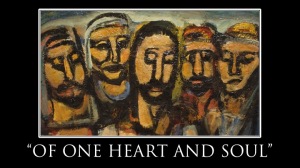
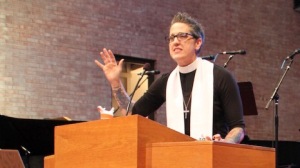
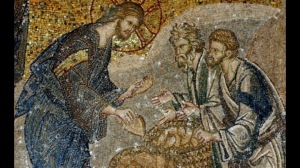
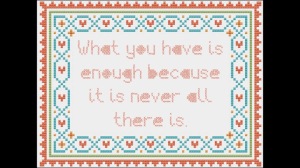




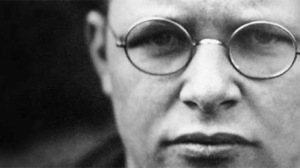
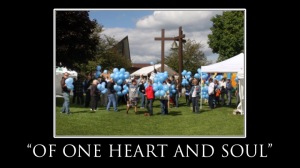































































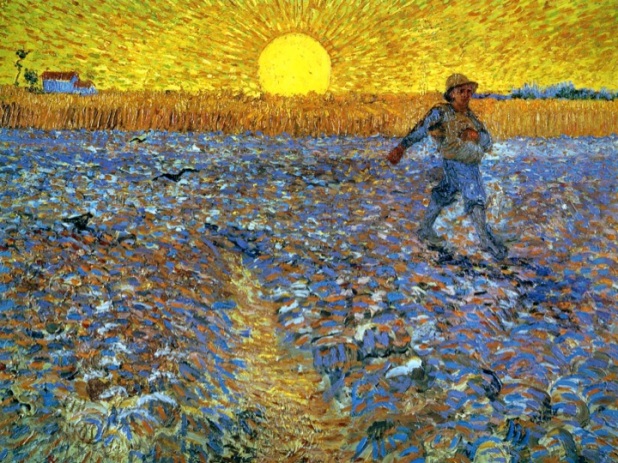

























































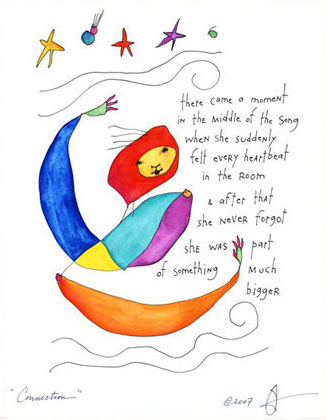


































































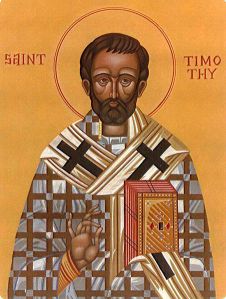












































































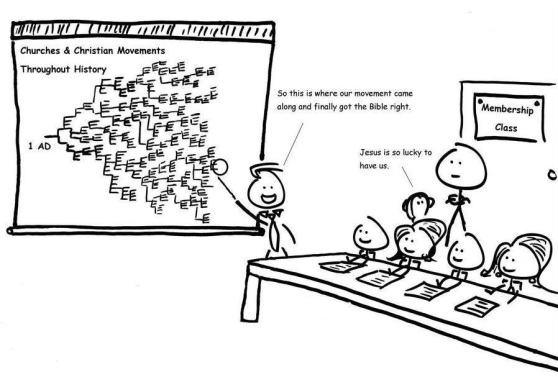









































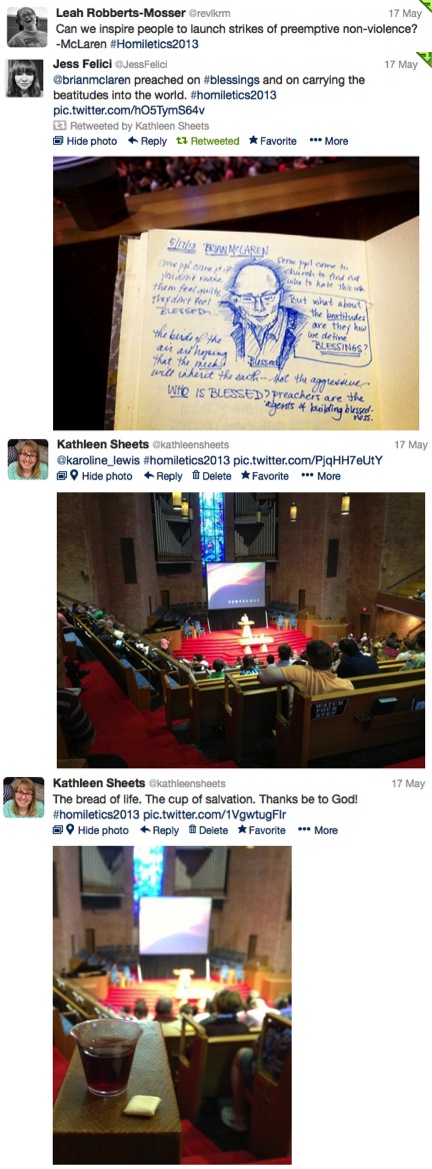





















































































 Have you ever read the Bible and felt like this? Like you’re being pointed in all sorts of directions and you’re not sure where to go? Or maybe you felt that it might mean something for your life, but your not sure which? And when you read more about scripture it you might hear even more of a confusing message?
Have you ever read the Bible and felt like this? Like you’re being pointed in all sorts of directions and you’re not sure where to go? Or maybe you felt that it might mean something for your life, but your not sure which? And when you read more about scripture it you might hear even more of a confusing message?









































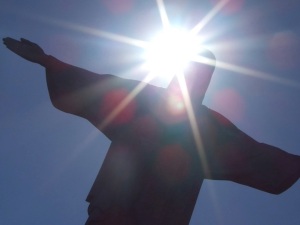

 There’s a story that was in the news a week or so ago about a New York policeman who offered boots to a man who was elderly, barefoot, and homeless. The policeman, officer Larry DePrimos, bought the shoes with his own money and helped to place the socks and shoes on this man’s feet. A tourist captured it in a photograph and posted it online. The picture went viral and was seen by more than 400,000 people. When questioned about it, the policeman said that he knew he had to help and so he did.
There’s a story that was in the news a week or so ago about a New York policeman who offered boots to a man who was elderly, barefoot, and homeless. The policeman, officer Larry DePrimos, bought the shoes with his own money and helped to place the socks and shoes on this man’s feet. A tourist captured it in a photograph and posted it online. The picture went viral and was seen by more than 400,000 people. When questioned about it, the policeman said that he knew he had to help and so he did. Arnold Cohen, President of the Partnership for the Homeless in New York City says, “We should be asking why there are so many people on the streets. And why a rich city… is so ill equipped to deal with the complexity of homelessness — because it is very complex.”
Arnold Cohen, President of the Partnership for the Homeless in New York City says, “We should be asking why there are so many people on the streets. And why a rich city… is so ill equipped to deal with the complexity of homelessness — because it is very complex.” This was the time of the Roman Empire. There was oppression, persecution, and financial disparity. Many were illiterate and disenfranchised. All except those at the very top were vulnerable socially and economically. It was indeed a time of complexity, when good deeds could be confused and charity could be seen as gullibility. This was not a simple world.
This was the time of the Roman Empire. There was oppression, persecution, and financial disparity. Many were illiterate and disenfranchised. All except those at the very top were vulnerable socially and economically. It was indeed a time of complexity, when good deeds could be confused and charity could be seen as gullibility. This was not a simple world. Both the photographer and the officer described the homeless man’s reaction as lighting up like it was Christmas morning. They delighted in this man’s delight. The moment was deemed worthy of capturing, worthy of doing. But when the story changes, is the feeling still the same? Is the action still reasonable? I believe in my heart of hearts, that “no act of love is ever wasted,”
Both the photographer and the officer described the homeless man’s reaction as lighting up like it was Christmas morning. They delighted in this man’s delight. The moment was deemed worthy of capturing, worthy of doing. But when the story changes, is the feeling still the same? Is the action still reasonable? I believe in my heart of hearts, that “no act of love is ever wasted,” We affirm in scripture and in our creeds as a Church that Jesus Christ, God’s own self, came to this earth and in the most extreme act of love, lived a sinless life, yet died for our sins. We were not and are not worthy of such a gift. There is nothing we can even do to fully earn such an enormous love. But that’s the beauty of grace, it’s a free gift of love, of forgiveness, of redemption.
We affirm in scripture and in our creeds as a Church that Jesus Christ, God’s own self, came to this earth and in the most extreme act of love, lived a sinless life, yet died for our sins. We were not and are not worthy of such a gift. There is nothing we can even do to fully earn such an enormous love. But that’s the beauty of grace, it’s a free gift of love, of forgiveness, of redemption. We are standing at the Advent of God’s presence in the world once again: A birth of One, fully God and fully human, inaugurated at Christmastime. We are also standing at the Advent of the possibility of God’s Kingdom lived out here on earth: God’s love through our love, God’s care through our care. God promised never to leave us or forsake us. God forever desires to be in relationship with us. God is always, God-with-us, Emmanuel. May we remember that promise this Advent season and every day. Amen.
We are standing at the Advent of God’s presence in the world once again: A birth of One, fully God and fully human, inaugurated at Christmastime. We are also standing at the Advent of the possibility of God’s Kingdom lived out here on earth: God’s love through our love, God’s care through our care. God promised never to leave us or forsake us. God forever desires to be in relationship with us. God is always, God-with-us, Emmanuel. May we remember that promise this Advent season and every day. Amen.